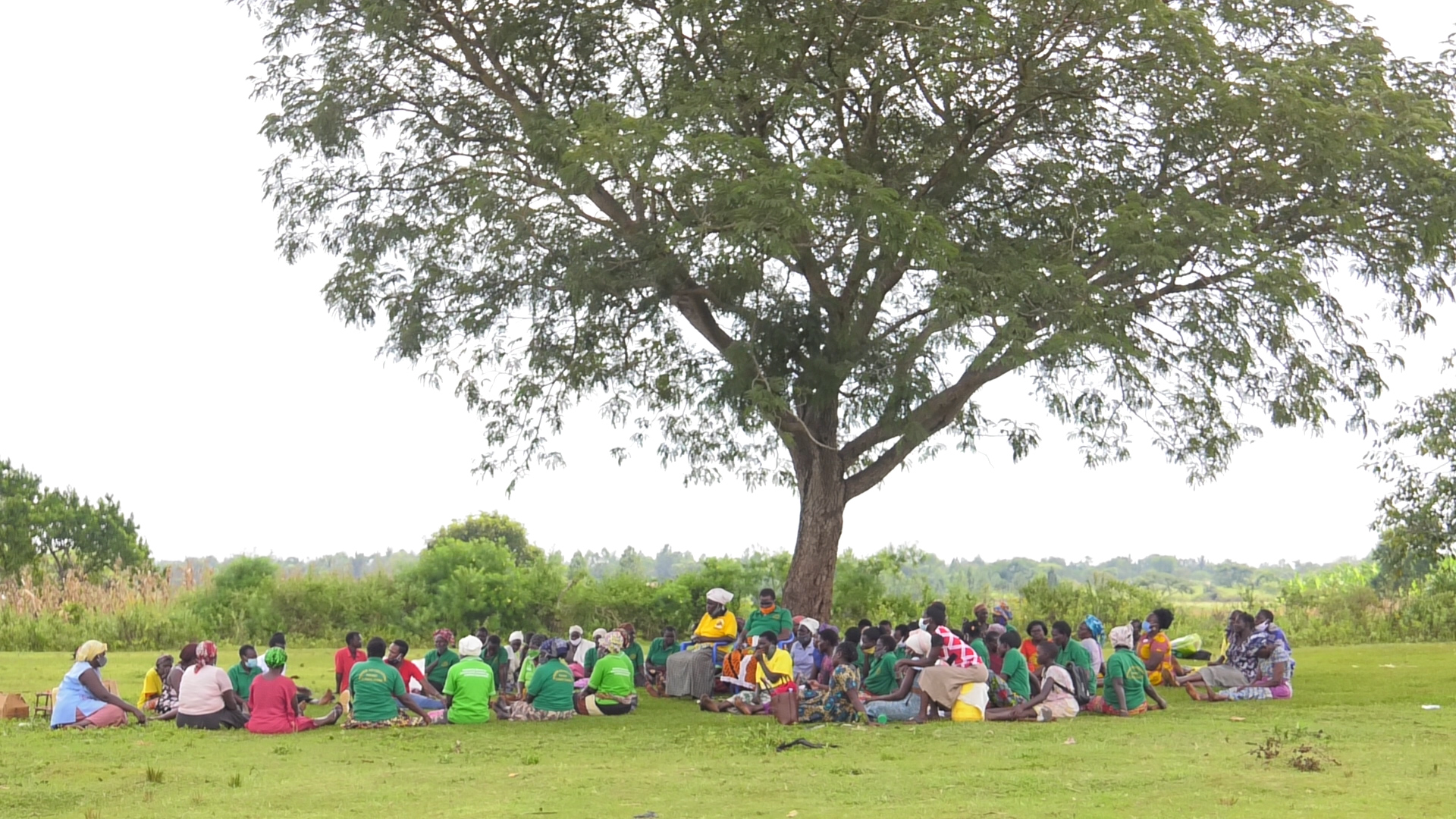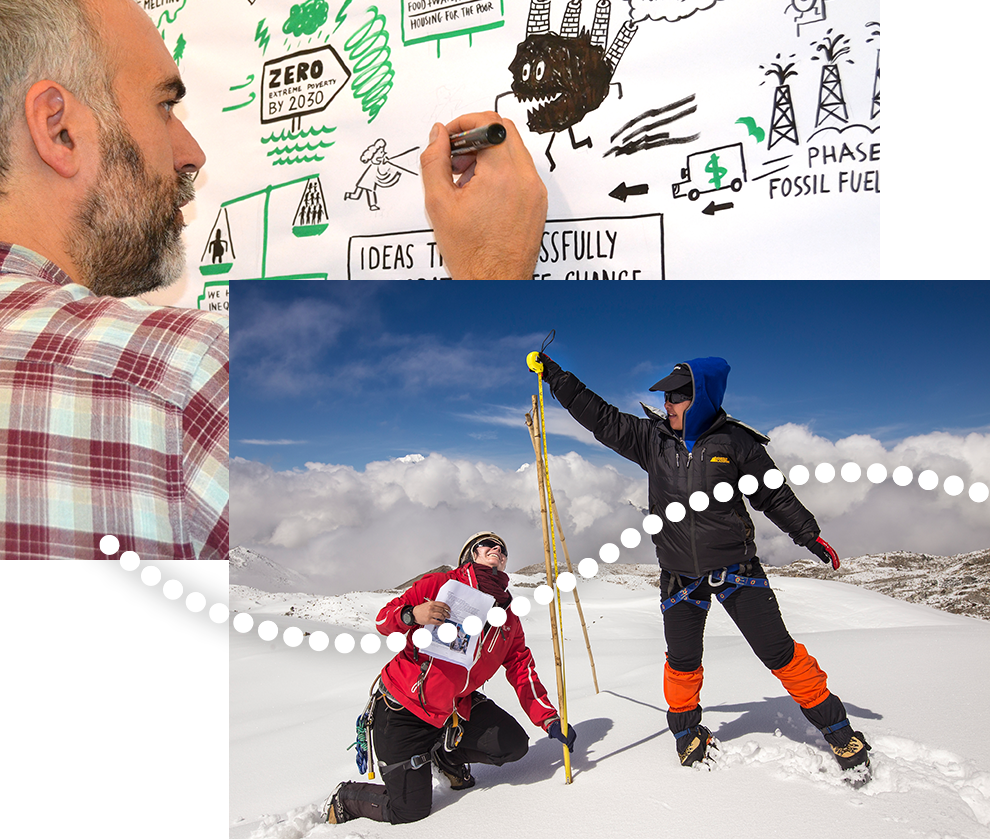CBA14 Marketplace: Center for Women-Led Climate Adaptation Breaks Ground in Uganda

Introduction
What rural women have now is infrequent access to training, often without needed follow up and support, and the inability to leverage women’s collective strength in the region for economic, cultural and political change for real solutions to climate change impacts.
The Women’s Climate Centers concept was developed from a community study in Kenya conducted by WCCI team member Rose Wamalwa with Women’s Water and Natural Resources Conservation. Rural women expressed the need for a regional network of training centers to serve as “social and economic knowledge hubs and as a resource of expertise, training, data collection and analysis on matters that affect women and the community at large within the context of African women and climate change.” The Women’s Climate Centers is a direct response to the women’s call to action.
Methods
The Women’s Climate Centers address the major impediments to rural women’s leadership on climate change solutions: insufficient capacity; lack of access to a holistic, low-cost, locally appropriate suite of climate change resilience technologies; scarcity of women-led public platforms and institutions to showcase rural women’s accomplishments; lack of access to capital and sustainable livelihoods; insufficient leverage for collective impact on public policy and initiative.
Centers will offer demonstrations, training events and supporting materials in local languages – an essential component that is often lacking in rural African. Peer to peer teaching and learning where local knowledge is shared is a core principle of the Centers. Our demonstration sites allow women to learn new techniques by practicing them with their peers in an equitable, safe, women-led, environment. The Women’s Climate Centers International model is a closed loop, regenerative system, both economically and from an operational perspective. Profits made from sales go back into supporting rural, local centers. Larger, urban centers will generate more revenues part of which will support adding centers. What makes the Women’s Climate Centers different from other networks and organizations at work in East Africa are the authentic partnerships and established leadership of our team members in communities. The local knowledge and expressed needs of their communities are the heart of the Women’s Climate Centers International training experience. Rather than being the passive recipients of well-meaning, one-off projects by international NGOs, the Women’s Climate Center communities are active partners with the Women’s Climate Centers International team in creating Centers that will improve yields, livelihoods and health outcomes through a holistic approach to climate change impacts. The National Parks system is our economic model for sustainable growth. It is our intention that, as we establish future Centers, Women’s Climate Centers International will offer revenue-generating activities at the larger centers in heavier populated areas to subsidize smaller centers in more remote areas, increasing access to skill sharing and knowledge transfer throughout East Africa. Revenue generation is anticipated through providing research, business and conference services at the Centers, with a long-term view towards additional entrepreneurial activities such as eco-tourism.As African women-led, brick-and-mortar institutions, the Centers provide the necessary leverage for rural women leaders to influence local and national policy, both on gender and climate change. A physical site showcases locally appropriate climate resilience solutions and enhances the leadership position of women from the local to the national to the international level.
Next Steps
Despite some delays due to the onset of COVID-19, our flagship Women’s Center is under construction in Tororo, eastern Uganda. Completion is expected in early 2021. Meanwhile, the Women’s Climate Centers International African leadership team is conducting consultations and trainings in Tororo as well in other rural locations in Uganda and Kenya which will contribute to research and policy outputs by the International Institute for Environment and Development and the World Resources Institute.
- CBA14 Marketplace: Climate Resilient Scalable Models on Land and Agriculture
- CBA14 Marketplace: Adapting for Climate Justice
- CBA14 Marketplace: Using a social accountability model to empower young people to lead communities in dialogue
- Centre for women-led climate adaptation breaks ground in Uganda
- Women leading the way to climate-resilience in Moldova
- CBA Bangladesh: Coping with Climate Risks by Empowering Women in Coastal Areas
- Gender and adaptation planning in the agricultural sectors: the case of Uganda
- Planning for the future and adapting to climate change in Uganda - Lessons from ACCRA

Comments
There is no contentYou must be logged in to reply.